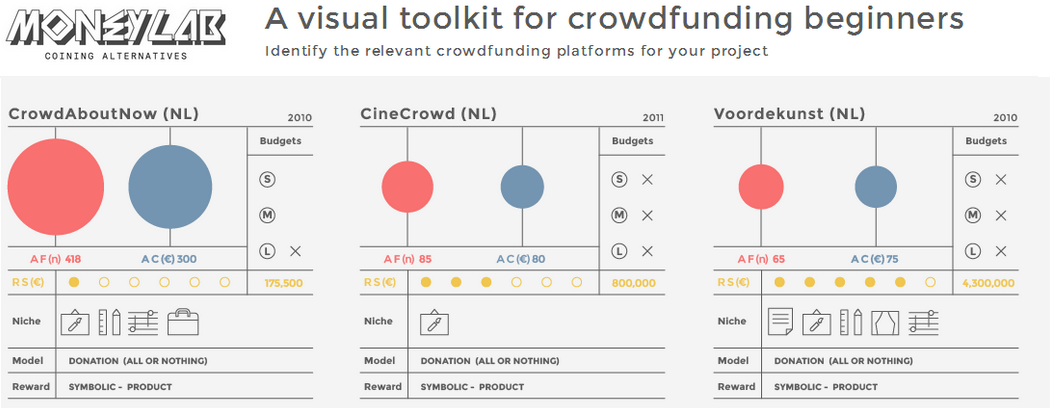
Successfully crowdfunded for a performance art event during the Museum Night in the Hague on Voordekunst. Crowdfunding model: donation. Amount raise: 2285 euro Number of funders: 42.
What resources do you usually approach to finance your projects?
Usually we finance our projects with subsidies. Dance cannot be financed privately. It would cost too much. We need a space to practice and weeks of rehearsals to get the performance on a professional level. For this special event in a public space (Museum Night, The Hague), we wanted to try crowdfunding. We were very knowledgeable on how much money could be asked, so aimed for a low budget. The event needed to be organized on short notice and therefore the crowdfunding campaign made sense.
Do you use specific financing resources for specific projects?
Normally, we can’t depend on crowdfunding, maybe just for special costumes or other props that are expensive. It looks silly if we can fund 20000 euro for a show and then still ask for 500 euro through crowdfunding. In this specific project, we asked for small amounts, with a minimum of 10 euro per donation. For this small amount, funders would receive a card as reward. We had little other money and did everything ourselves.
How did the process of crowdfunding go? What were the biggest challenges?
It was hard to get the crowd quickly gathered around our initiative. The campaign was held on the platform of Voordekunst. To stand out among many other dance activities as a professional dance group is not that easy. The negotiations on how to run the campaign were also time consuming. The platform kept coming back with new demands and considerations. It took us a lot more time than we anticipated. They wanted to be Dutch with their campaigns but our dance group is very international. We wanted to attract an international audience. Our family and friends from abroad should be involved as well. In the end they made us very happy.
How did crowdfunding change your perception about getting financed? Did it bring an added value?
It hasn’t changed it that much, we still rely on subsidies. It is actually quite frightening that international reclaimed theatre groups should be made dependent on crowdfunding to develop shows. That could never work and would have a big impact on the art scene as an independent resource for developing our culture. The values imbedded in art should be questioned on their own merits and not by popularity contests. Arts are part of the cultural infrastructure that need to be funded by this society. Arts are no luxury but essential to society. It would be ignorance to say otherwise.
How would you describe the experience with the crowd? Did it change anything about your project (production, concept, or your expectations about it?)
It was interesting to have the possibility to involve friends who live far away in the campaign. It can also be a way to relate to your audience if you host the campaigns by yourself. People can be updated with your initiatives and asked to be part of new developments. You have to be a lot more humble with your crowd. Asking someone to pay 20 to 30 euro needs to be in accordance with what you are doing and offering. You cannot ask for more money than a ticket for a show would normally cost. The donation should not be payment for the reward.
However, crowdfunding overall did not change much for the dance group. It was a one-off thing and we do not have big expectations for future shows in relation to crowdfunding.
What were the difficulties you encountered? Did any aspects of crowdfunding make you feel uncomfortable?
It made us feel uncomfortable when we had to negotiate our terms all the time with Voordekunst. It looks simple but it isn’t. The approval process takes a lot of time and after 10 days you still get instructions on how to do it according to them. However, we knew up front that our campaign would be approved. Voordekunst have a special section for dance performances which initially seemed a good thing for us but later on turned out not so positive, since we were compared with other groups that were clearly amateur. Therefore, how people would choose to donate or contribute seemed rather accidental.
Would you crowdfund again? What would you change?
I think crowdfunding could be done again in the future but no more than once a year, and only for a special project. Next time we would organize the campaign ourselves because now we have our network in place and reach to it more easily.


